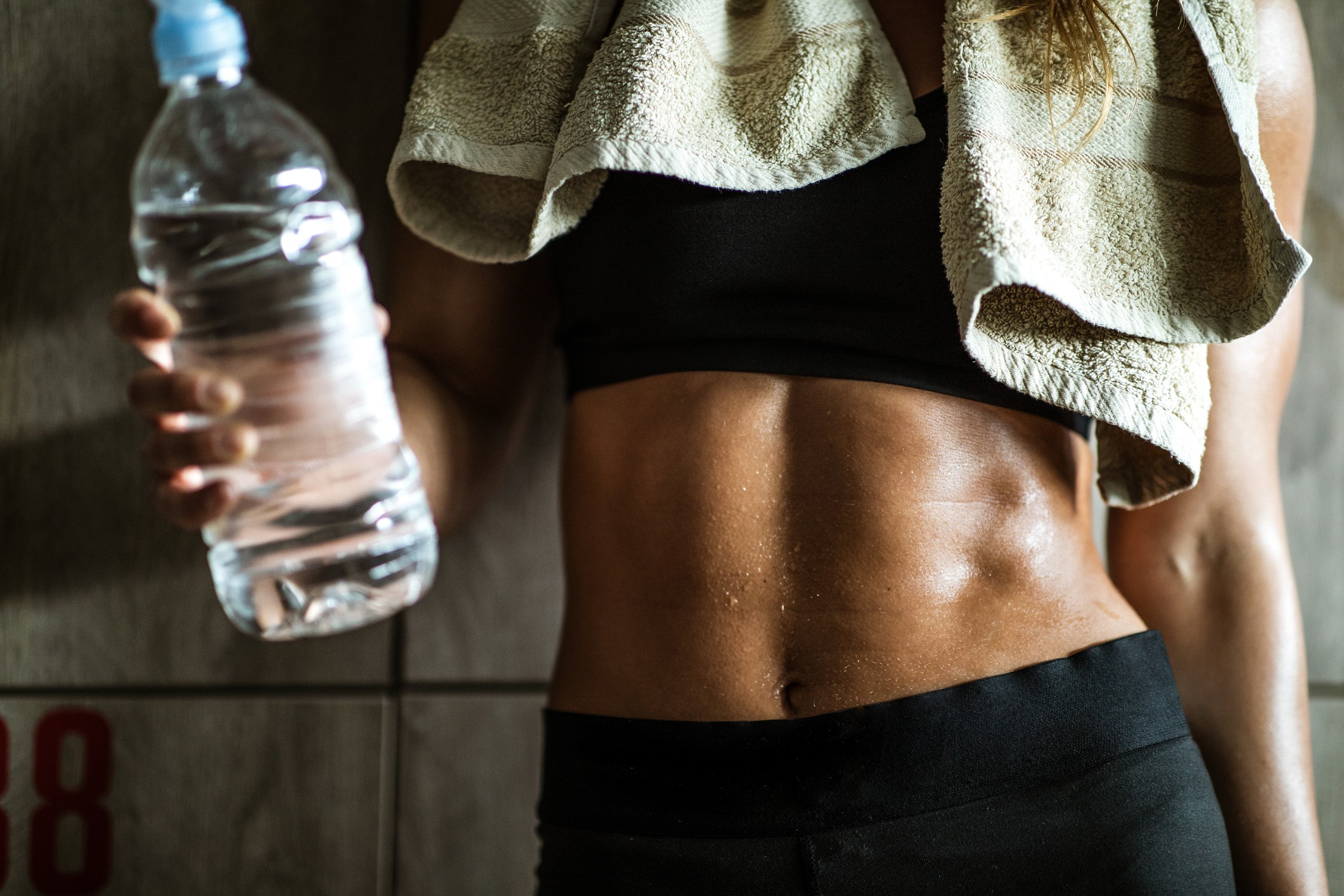We all know we should be drinking water. Lots of us probably don’t drink enough.
Water is great for our skin, concentration and overall wellbeing, but when we workout we need to drink even more of it.
Ensuring you drink plenty of water not only keeps you safe, but it’s necessary for your performance during a workout.
Even mild dehydration can hinder your workout efforts, decreasing both mental and physical capabilities. Dehydration can reduce energy, and cause muscle cramps and dizziness.
Drinking water helps blood flow and your muscles to contract – both vital for receiving the benefits of exercising.
But how do you know exactly how much water your body needs in order to recover after a workout?
Whether you’re an elite athlete, an occasional class-goer or a running fanatic, hydration is key after exercise. But will one glass do the trick? Maybe two?
Personal training experts at Origym have revealed a simple hack to help you calculate how much to drink after exercising in the heat – they call it the ‘Sweat Reset Calculation’.
How to know how much water to drink after a workout
The ‘Sweat Reset Calculation’ tells you exactly how much water you need to drink to rehydrate after your workout.
There are four steps to follow:
- If you’re planning a workout that day, weigh yourself naked beforehand. Ideally first thing in the morning after going to the toilet.
- Once you have finished your workout, go to the toilet, and weigh yourself again naked.
- Calculate how many grams you’ve lost, then multiply it by 1.5.
- So, if you lose 100 grams in a workout, you’ll need to take on 150 millilitres of water.
Or, for every kilogram of weight you have lost, make sure you drink at least 1.5 litres of water.
How to prevent dehydration
Doing a workout in normal heat already increases your body temperature, and sweating cools the body down. If you’re not hydrated with water, the body cannot cool itself down effectively.
Exercising in a heatwave is even more dangerous without sufficient hydration.
Hydrating a few hours before you begin a workout allows you to absorb the water and prepare for the physical stress of exercise.
Drinking fluids whilst you exercise helps you to maintain a safe body temperature.
Hydrating after a workout helps your muscles to recover.
1. Hydrate before your workout
Preparation is key. If you aren’t hydrated enough before your workout, your body temperature will increase quicker, and your heart will need to work even harder.
To avoid this, steadily drink water throughout the day, but drink 1 pint of water two-four hours before exercise, and another half pint within 15-30 minutes of starting.
2. Hydrate during your workout
Dehydration will mean your workout isn’t as effective, and it’s even more likely during the hot weather. You’ll need to stay hydrated during your exercise sessions too, so keep drinking water consistently throughout.
It’s difficult to quantify exactly how much to drink during a workout because everybody is different, and it depends on size, fitness and exercise intensity. Therefore, listen to your body, and drink when you are thirsty.
3. Hydrate after your workout
Following a workout, you’ll need to replace all the fluid you lost through sweat. Use the above calculation to find out exactly how much water you need to drink to rehydrate after your workout.
The warning signs of dehydration
Symptoms of dehydration in adults include:
- Feeling thirsty
- Feeling dizzy
- Dark yellow and strong-smelling urine
- Tiredness
- Dry mouth, lips and eyes
- Urinating infrequently, e.g. fewer than four times a day
A pharmacist can help with dehydration by recommending oral rehydration sachets.
However, if you have serious dehydration symptoms such as the below, call 999 or go to A&E.
Symptoms needing urgent treatment include:
- Feeling unusually tired
- You’re suffering from confusion or disorientation
- Dizziness when you stand up that doesn’t go away
- You haven’t urinated all day
- A weak or rapid pulse
- You have a fit or seizure
Do you have a story to share?
Get in touch by emailing [email protected].
MORE : Try this Pilates resistance band workout to build full-body strength
MORE : Trainer shares online workouts that will ‘improve your sex game’
MORE : It ‘takes three years’ to get back to pre-pregnancy fitness after giving birth – this is why that’s OK

